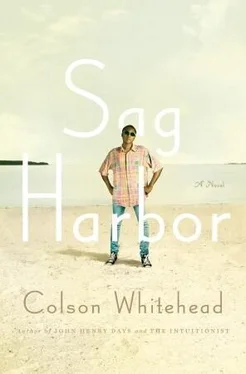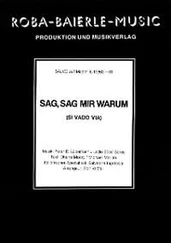The bottle of Tanqueray thunked on the wood of the kitchen counter, followed by the tinny rasp of the bottle cap sliding clockwise. Crack crack! The gin shattered the ice, slicing planes through the cubes, but they remained whole, only the thin fuzz of frost melting into the alcohol. The first of the day's many chemical reactions. Poomp —the magnet pulled the door shut. He opened the refrigerator door and another magnet, silent in its coat of white accordion plastic, drifted away from the metal frame. The tonic water hissed as the pressure in the bottle fizzed away. The bottle made a slight ting as it slid into the rack in the fridge door, next to the relish and mustard.
I was well acquainted with all these sounds and heard the other silent things. This made no sound: my father stirring his drink with his finger. This also made no sound: that dreaded calculation, how many is that today? Certainly this made no sound: the understanding, I'm pushing my luck by hanging around here. And silent now but soon to make itself heard, the chemical reaction in his brain that said, Let's get this hate in gear.
“Can I turn the channel?” I asked. He had turned to CNN. “Road Warrior is coming on.”
“Go ahead.”
We were a made-for-TV family. Every new channel added to our lineup, every magnificent home-entertainment advance increased the possibility that we wouldn't have to talk to one another. If we lived a hundred years in the future, we'd never have to deal with one another at all. Peering 24-7 into our virtual-reality headsets, we'd merely bump into one another every so often, a family that knew itself as kicks in the shin and elbows in the stomach. Although if I stop to think about it, that would probably be more physical contact than we had now.
There's no dialogue in the first ten minutes of The Road Warrior , once the narrator sets up the when-where-why (After Apocalypse-Apocalyptic Wasteland-Survival.) The Road Warrior and his dog scour the desert looking for food and gas. Mohawked madmen ride motorcycles and trucks and souped-up muscle cars, preying on the weak. Things kick into gear when the Road Warrior discovers the settlement, an old oil refinery where a band of humans have cobbled together a community in the void of the world. They live under siege, the leather-clad psychos circling their walls, the outside world hollering in menace. I loved The Road Warrior .
Through the glass, my father got to work. First up, grill prep. He wheeled the Weber to the side of the deck and dumped last week's ashes over the rail. They thrashed through the air in gray waves. His eyes were slits. The ashes tumbled into their mound. Ten feet separated us from the neighbor's house, and no one ever walked over there, especially since me and Reggie had outgrown “exploring” the property, pretending the scrub pines and gnarled bushes were alien territory. Trying to make unknown that which was completely known. The mound grew higher all summer, hardening into black cakes when it rained. Off-season, the wind took it away so he could start over again.
Next came the ceremonial scrubbing away of last week's grease from the grill. “Don't want that to flare up when I'm trying to cook some chicken.” He cleared the dishes in the sink to have room to work. The SOS pads disintegrated into pink suds and nubs of metal in his hand. Top side, underside, the tiny cracks where the rods met. This took a while. He hummed some Nat King Cole.
I went to the bathroom and when I came out, CNN was on. I turned it back to The Road Warrior . He didn't respond.
I wanted something to read. The TV was always on in our house, whether people watched it or not. We needed sound, any kind of sound. Watching TV and reading at the same time was standard op. We didn't have a lot of books in the beach house. There were my mother's Danielle Steels and Judith Krantzs, old horror and sci-fi novels of mine and Reggie's that were neither beloved nor gory enough to reread. I had some old Amazing Spider-Mans and Marvel Two-In-Ones in our bedroom dresser, but the last few months I had renounced all things dorky and was doing quite well at it, my spring nerd-purge and subsequent haircut revelation feeding my resolve.
Which left The Book of Lists , that eccentric encyclopedia of the world, boiling down trivia into thick, murky lumps of truth. National Bestseller! It was falling apart. I'd read it many times, but there was always some new list that fell out from between the pages into my lap, tweaking my status quo. Not 6 Positions for Sexual Intercourse or 8 Remarkable Escapes from Devil's Island, I had those memorized. I didn't care that the book was already horribly dated in 1985 (#1 Hero of American Boys and Girls — O. J. Simpson; #1 Most Beautiful Woman of Modern Times — Twiggy). I still respected the classics, like 8 Cases of Spontaneous Combustion and 10 Ghastly Ghosts, which might as well have been commandments carved into stone tablets, eternal and awesome. Spontaneous combustion is a rare occurrence, to be sure, but you never know. Forewarned is forearmed.
Mrs. Gardner padded up from the beach and made her way across the deck. I saw her out of the corner of my eye and ducked into Dr. Ashley Montagu's 10 Worst Well-Known Human Beings in History. (You'd be surprised.) She rapped on the glass. I feigned being startled. She was nice enough — her daughter and son were my sister's age, so we'd had a lot of dealings over the years — but still.
“How you doing, girl?” my father asked cheerfully.
“Just making my way down the beach,” she said. “Mind if I use the facilities?”
Another thing, besides the routine quicksand, was that you had to talk to grown-ups all day if you stayed in the house. They came up for a bathroom stop, to say hello and check off this encounter from their weekend to-do list, to grab the drink that was always offered. Back then I didn't realize that most grown-ups didn't want to talk to you as much as you didn't want to talk to them. Hello, how are you? The smallest interaction made me shrivel as I considered the consequences. My brother and mother and sister, they were known quantities. I knew how to factor in my mother's rare spells of defiance and Reggie's monkey-wrench ways. These people coming up from the beach were rogue variables, and you couldn't predict their effects. The wrong word, the wrong reminiscence might set the afternoon on a new, choppy course. They might say or do something that started a reaction, either when they were there or after they left, hours later when his brooding had got a hold of it and we were the only audience. The sound of the screen door closing behind them was never much of a relief because you didn't know what they'd left behind.
“You making some of that good barbecue?” Mrs. Gardner asked as she left the bathroom.
“You know me,” he said. “Can I fix you something?”
She went off empty-handed — pre-barbecue visits were always shorter than when food was around — and my father went out to start the fire.
“She better not of stunk up the bathroom,” he said.
I chuckled.
Tock, thunk, rasp, poomp .
Kingsford charcoal, my father's fuel of choice. When it came to grilling, anyway. The coals rustled out of the big blue-and-white bag onto the grate. Gravity had a design, tossing them in a certain arrangement. My father had his own laws, a precise concept of fire formation honed over the years. To people like you and me, a briquette is a briquette. Not to him. He seemed to analyze each coal individually, taking measure of its strengths, deficits, secret potential. The diamond in the darkness. He knew where they needed to go, recognizing the uniqueness of each cube and determining where it fit with the rest of the team. He assembled the pyramid meticulously, perceiving the invisible — the crooked corridors of ventilation between the briquettes, the heat traps and inevitable vectors of released energy, any potential irregularity that might undermine the project. The sublime interconnectedness of it all. He asserted his order. Built his fire.
Читать дальше












